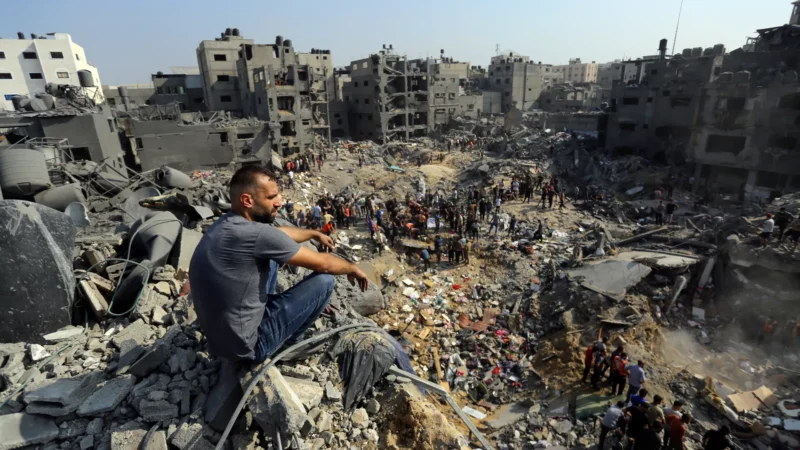Russia and Belarus extend military drills amid Ukraine tensions

The extension of drills draws Western concerns with US secretary of state saying it is a sign of an imminent invasion of Ukraine.
Russia will extend military drills in Belarus that were due to end on Sunday, the Belarusian defence ministry announced, in a step US Secretary of State Antony Blinken said made him more worried about an imminent Russian invasion of Ukraine.
The defence ministry said the decision was taken because of military activity near the borders of Russia and Belarus as well as the situation in eastern Ukraine’s Donbas region.
Sporadic shelling across the line dividing Ukrainian government forces and Russian-backed separatists in that region increased sharply last week and continued on Sunday.
Speaking to CNN, Blinken said all signs suggested Russia was about to invade. Russia has repeatedly denied such plans.
“Everything we are seeing suggests that this is dead serious, that we are on the brink of an invasion,” Blinken said, adding that the West was equally prepared if Moscow invades.
“Until the tanks are actually rolling, and the planes are flying, we will use every opportunity and every minute we have to see if diplomacy can still dissuade President Putin from carrying this forward.”
Putin and his French counterpart, Emmanuel Macron, agreed in a phone call on the need for a diplomatic solution to the crisis in eastern Ukraine, both governments said.
A French presidential adviser said the two agreed that a meeting of the Organization for Security and Co-operation in Europe (OSCE), with representatives from Ukraine and Russia, should be held on Monday.
An extraordinary session of OSCE
Poland, currently the OSCE chair, earlier said that at Ukraine’s request it was convening an extraordinary session of the council, which is dedicated to preventing armed conflict, on Monday.
Belarus did not say how long Russian troops in Belarus – estimated by NATO to number 30,000 – might now remain in the country, which lies north of Ukraine.
Belarus defence minister Viktor Khrenin said the focus of the extended exercises was “to ensure an adequate response and de-escalation of military preparations of ill-wishers near our common borders”.
The Kremlin did not comment on the Belarus drills. The Macron adviser said that Putin had reiterated that the troops would leave Belarus after the exercises.
NATO says Russia could use the troops in Belarus as part of an invasion force to attack Ukraine. Moscow denies any such intention.
“It is not an exaggeration to say that Europe is a step away from war, which was something unimaginable not long ago,” Czech Prime Minister Petr Fiala said in a TV interview.
Mykhailo Podolyak, an adviser to the Ukrainian president’s chief of staff, told Reuters the extension of the exercises underlined that official promises from Moscow should not be taken as binding.
Sanctions
Kremlin spokesman Dmitry Peskov said the repeated warnings by the West that Russia was about to invade were provocative and could have adverse consequences, which he did not spell out.
Russia says the West has raised tensions by sending NATO reinforcements to eastern Europe during the crisis.
Western countries are preparing sanctions they say would be wide-reaching against Russian companies and individuals in case of an invasion.
British Prime Minister Boris Johnson said in a BBC interview that such sanctions could include restrictions on Russian businesses’ access to the dollar and the pound. However, he acknowledged such threats may not deter Moscow.
Ukraine’s foreign minister Dmytro Kuleba said it was time for the West to implement at least part of the sanctions it has prepared.
“Russia has to be stopped right now. We see how events are unfolding,” Kuleba said.
The focus of tensions in recent days has been on the swathe of eastern Ukraine that Russian-backed rebels seized in 2014, the same year Russia annexed Crimea from Ukraine.
More than 14,000 people have been killed in the conflict in the east.
Zelenskyy calls for an ‘immediate ceasefire’
Ukraine’s President Volodymyr Zelenskyy called on Sunday for an immediate ceasefire in the eastern part of the country. Macron blamed the separatists for the renewed hostilities, while Putin blamed Ukraine, the French presidential adviser said.
Kyiv’s Western allies are concerned Russia might use the escalation as a pretext for wider conflict.
On Sunday, a Reuters reporter heard explosions in the centre of Donetsk city in the eastern Donbas region controlled by separatists. Heavy shelling was heard elsewhere in the region.
SMS messages sent to residents of Donetsk urged men to report for military duty.
More than 30,000 people from Donetsk and nearby Luhansk have crossed the Russian border in the past 24 hours, TASS news agency said, quoting authorities in Russia’s Rostov region. The separatists began evacuating residents on Friday saying Ukraine was planning to attack – which Kyiv denies.
Local military forces in one of the separatist areas, Luhansk, said on Sunday that two civilians had been killed and five buildings damaged in shelling by the Ukraine military. Russia’s Investigative Committee will investigate the case, the RIA news agency quoted it as saying.
Two Ukrainian soldiers were reported killed and four wounded on Saturday.
The International Committee of the Red Cross said water services had been disrupted for more than a million people in the region, and called on all sides to spare civilian infrastructure.
Elderly men and women, some well past retirement age, are getting ready to fight on either side of the separatist conflict in Ukraine.
The renewed fighting in eastern Ukraine follows a buildup over several weeks of Russian troops to the north, east and south of the country. The West estimates 150,000 or more Russian troops are currently near Ukraine’s borders.
Russia has demanded NATO prevent Ukraine from ever joining the alliance. It has warned of unspecified “military-technical” measures if its demands for NATO pullback from Eastern Europe are not met.
A Russian diplomat at the UN said no one should tell Russia where or when to conduct exercises.






